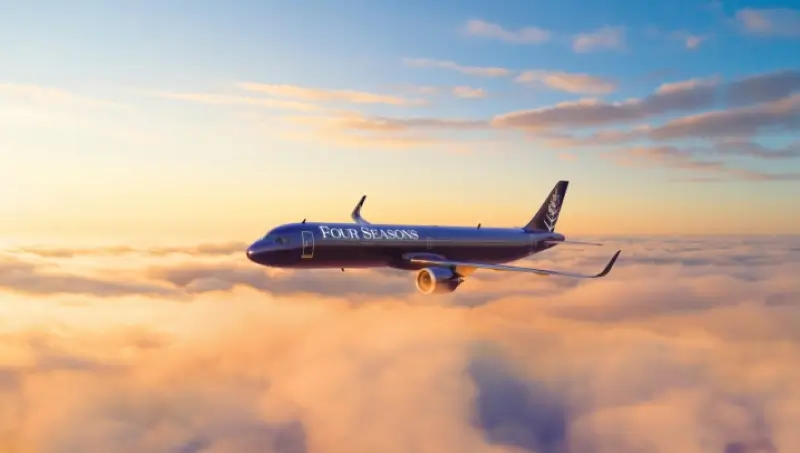
Pilot suicide confirmed for Germanwings 9525
Mar 25, 2015

In March 2015, Germanwings Flight 9525 tragically crashed in the French Alps, resulting in the deaths of all 150 people on board. Investigations revealed that the co-pilot, Andreas Lubitz, deliberately initiated the descent of the aircraft while the captain was locked out of the cockpit. This act of suicide shocked the world and raised serious concerns about mental health screening for pilots. The incident sparked discussions about aviation safety protocols and the need for more stringent regulations regarding the psychological well-being of airline personnel, ultimately leading to changes in cockpit access policies and pilot health assessments.
On March 24, 2015, the aviation industry was shaken to its core when Germanwings flight 9525 tragically crashed in the French Alps. This catastrophic event claimed the lives of all 150 people on board and raised numerous questions regarding the mental health of pilots and the measures implemented to ensure flight safety. Following extensive investigations, it was confirmed that the co-pilot, Andreas Lubitz, deliberately crashed the aircraft, marking the incident as a shocking case of "pilot suicide". This article aims to explore the implications of this tragedy and the subsequent changes in regulations and safety protocols within the aviation industry.
Understanding the Incident
The investigation into Germanwings flight 9525 revealed that Lubitz had a history of mental health issues, including severe depression, which he concealed from his employer. This incident has been classified as a case of "pilot suicide", raising significant concerns about the psychological screening processes for airline crew members. The findings highlighted the need for improved mental health assessments and transparency in pilots' health records to prevent similar occurrences in the future.
The Aftermath of the Crash
In the wake of the crash, various aviation bodies, including the "European Aviation Safety Agency (EASA)" and the "Federal Aviation Administration (FAA)", initiated a comprehensive review of their safety policies. The key focus was to enhance the "mental health evaluation" protocols for pilots and to put in place stricter regulations regarding the reporting of mental health issues. The following table summarizes the major changes introduced after the incident:
| Regulatory Change | Description |
|---|---|
| Mental Health Screening | Mandatory psychological evaluations for pilots as part of regular medical assessments. |
| Reporting Mechanisms | Improved protocols for pilots to report mental health issues confidentially without fear of job loss. |
| Training Programs | Enhanced training for airline staff to identify signs of mental distress in pilots. |
| Flight Deck Procedures | New regulations regarding cockpit access to ensure that at least two crew members are present in the cockpit at all times. |
Impact on the Aviation Industry
The confirmation of "pilot suicide" in the Germanwings crash has had a profound impact on the aviation industry. Airlines have become more vigilant about mental health issues, recognizing that the psychological well-being of pilots is just as crucial as their technical skills. The emphasis on mental health has led to the implementation of various support systems for pilots, including counseling services and wellness programs.
Furthermore, airlines have begun to foster a culture of openness about mental health. Pilots are encouraged to seek help without the fear of stigma or repercussions. This cultural shift is essential in ensuring that pilots are not only fit to fly but also mentally healthy.
Public Perception and Response
The tragic loss of life in the Germanwings 9525 incident has also influenced public perception regarding air travel safety. Passengers have become increasingly aware of the potential for mental health issues among pilots, leading to questions about the adequacy of current safety measures. In response, airlines have launched public relations campaigns to reassure travelers about the rigorous screening processes in place to ensure safe flights.
Moreover, advocacy groups have emerged to promote mental health awareness in the aviation sector. They emphasize the importance of breaking down the stigma surrounding mental health issues and pushing for comprehensive reforms to protect both pilots and passengers.
Conclusion
The confirmation of "pilot suicide" in the Germanwings 9525 tragedy serves as a grim reminder of the complexities surrounding mental health in high-stakes professions like aviation. As the industry continues to grapple with the implications of this incident, it is clear that a commitment to enhancing mental health support and screening for pilots is vital. By fostering a culture of openness and support, the aviation industry can work towards ensuring that such a tragedy does not occur again. The ongoing efforts to improve safety protocols and mental health resources reflect a crucial step forward in prioritizing the well-being of pilots and the safety of passengers alike.
The legacy of Germanwings flight 9525 underscores the importance of addressing mental health issues in aviation, and it is essential for all stakeholders to remain vigilant and proactive in promoting a safe flying environment.
Related Articles

Explore Thailand: The Best Islands to Visit for Paradise, Adventure, and Relaxation

The Ultimate Guide to the Best Islands in Thailand for Your Next Getaway

Do babies need passports? How to get a passport for a newborn

How to get a U.S. passport fast: here’s how to expedite the process

What is Mobile Passport Control: 5 reasons why you should use it

SENTRI vs. Global Entry: A detailed guide

Do you need a passport to go to the Bahamas? Let’s find out

Do you need a passport to go to Mexico? A detailed guide

Do you need a passport to go to Canada? We got the answer

Do You Need a Passport for a Cruise: An Essential Travel Guide

Booster Seat Requirements: All the Rules to Follow in Your Rental Car

What Are the World’s Most Powerful Passports, and How Does Yours Rank?

How to Take a Passport Photo at Home: A Helpful Guide

You've got to have heart! Southwest's new livery

Your opinion: Should water be free on low cost carriers?

Young women bolder than guys as solo travellers
